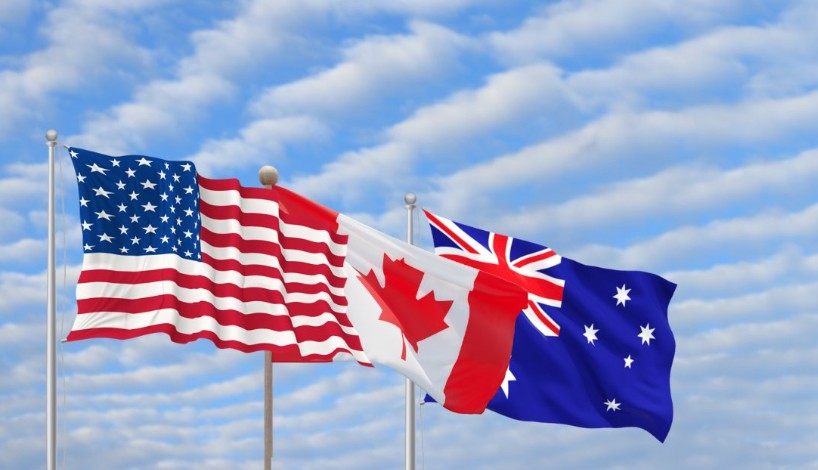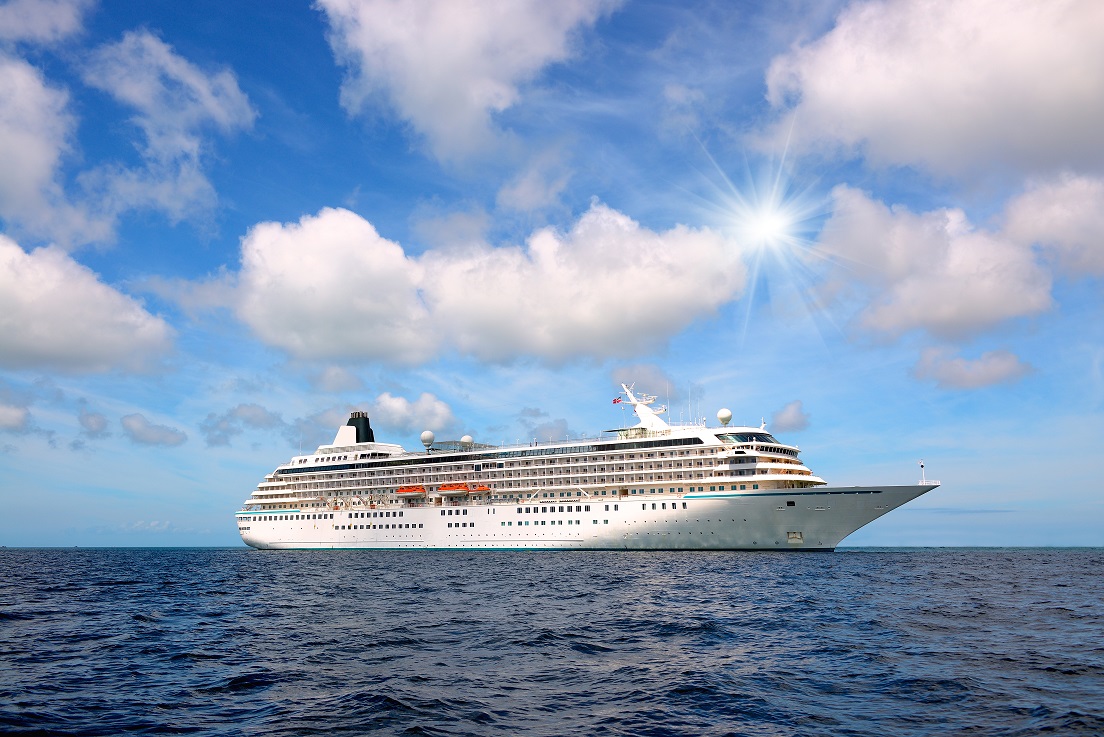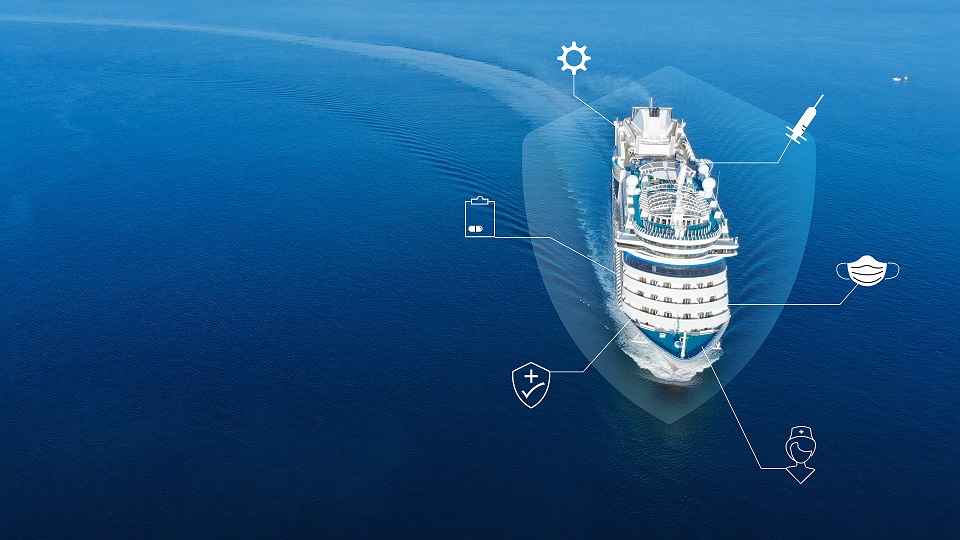
Visa exemptions for certain nationalities rei...
read more

After the voluntary suspension earlier this year, cruise season in Brazilian ports is clear to start over a week after Carnival
Brazil’s Ministry of Health has authorised the resumption of cruise ship operations from 5 March 2022, subject to changes to the current national and international epidemiological scenario of COVID-19. The previous regulation (Ordinance GM/MS 2,928/2021) was repealed.
The 2020/21 cruise season was cut short in March 2020 as the COVID-19 pandemic hit. In October 2021, the authorities allowed the 2021/22 season to start from November 2021; however, cruise operators suspended the season in the first week of last January due to coronavirus cases on all five cruise ships sailing off the Brazilian coast.
Ordinance GM/MS 413 of 25 February 2022, as amended by Ordinance GM/MS 418 of 2 March 2022, regulates the handling of COVID-19 cases on cruise ships and compliance with the isolation or quarantine of travellers. It classifies the epidemiological scenario of such vessels in four levels, where 3 and 4 are considered as shipboard COVID-19 outbreaks, as follows:
| Epidemiological scenario of the vessel in the last 7 (seven) days, regardless of the date of commencement of the voyage | |
| 1 | A medical professional reports no COVID-19 case record in the daily notification sent to ANVISA within 24 hours |
| 2 | Passengers: Less than 0.3% cases of COVID-19, considering the total number of passengers on board; And Crewmembers or Non-Crew Professionals (NCP)*: No case of COVID-19 reported, with daily negative notification |
| 3 | Passengers: Cases of covid-19 reported equal to or above 0.3% of total passengers boarded, up to a maximum of 10%; Or Crew members or NCPs: One or more cases of COVID-19 were reported among the crew and NCPs. Or The ship did not send daily negative notification of COVID-19 |
| 4 | Passengers: Cases of reported COVID-19 above 10% of total passengers on board; Or Crew members or NCPs: Cases of reported COVID-19 above 10% of the total crew; Or Occupancy equal to or greater than 60% of the number of accommodations for isolation; Or Occupancy equal to or greater than 80% of available medical centre beds |
*Non-Crew Professionals (NCP) are all those who, without performing duties linked to the operation of the vessel, provide punctual and specific services on board, such as professionals in the areas of catering, hospitality, sports, leisure, and entertainment
The new regulation imposes responsibility on travellers and cruise operators, as summarised below:
Passengers and crew (including NCPs) must immediately inform the vessel’s medical staff of their clinical condition, remain isolated in their cabin until medical advice, and be tested for SARS-CoV-2 infection by molecular or rapid antigen test.
The person testing positive for COVID-19 must isolate for 10 (ten) full days for a mild or moderate flu syndrome and 20 (twenty) days for a severe or acute respiratory syndrome, counted from the onset of symptoms. Day 0 (zero) is when symptoms first appeared; Day 1 (one) is the first full day (24 hours) after that, and so on.
Isolation can be suspended on the seventh full day for immunocompetent patients with mild to moderate conditions, asymptomatic and afebrile without antipyretic drugs after 24 hours.
Those responsible for the vessel’s medical centre must send daily reports to the port health authority (ANVISA) informing all cases of flu-like symptoms or severe acute respiratory syndrome and travellers who have tested positive for COVID-19.
Shipmasters and medical staff must ensure that the suspect or confirmed case remains isolated in a cabin allocated exclusively for this purpose. Vessel operators must make sure that travellers tested positive who disembark for quarantine ashore, with prior permission from ANVISA, are hosted in a hotel prepared to receive individuals infected with SARS-CoV-2, hospitalised, or sent home for self-quarantine.
Shipowners and operators must ensure adequate medical facilities onboard and ashore to care for COVID-19 suspect or confirmed travellers, including those in need of hospitalisation.
Operators and medical staff must ensure that the necessary health protocols for COVID-19 are in place and up to date and contain at least information on measures to handle emergency medical evacuations and minimise the burden on the public health system.
Individuals who test negative by RT-PCR or RT-LAMP should remain in cabin isolation until symptoms remit. Those with a negative rapid antigen test result should have a new sample collected for RT-PCR or RT-LAMP testing and stay isolated in their cabins until the retest results come out and they fully recover.
Travellers who share the same cabin with a travel group or others who have been less than one metre away, longer than 15 (fifteen) minutes and without a mask, or who have had direct physical contact with the suspect case are considered close contacts. All close contacts must be immediately identified and tested.
Close contacts belonging to the same travel group or occupants of the same cabin as a confirmed case, even tested negative, must be kept in quarantine until disembarkation or the molecular or antigen test result is disclosed.
Travellers with signs and symptoms of COVID-19 who have tested negative in an RT-PCR test and their asymptomatic close contacts may be exempted from continuing the quarantine.
Vessels reaching level 4 of the Regulation must be quarantined following the rules laid down by ANVISA, even after applying the appropriate sanitary control measures and upgrading the vessel’s epidemiological scenario to level 3 or lower.
The Ministry of Health recommends that, after the trip, passengers stay in self-quarantine for 14 (fourteen) days.
Asymptomatic travellers with a negative or undetectable molecular or antigen test, performed from the fifth day after disembarkation, do not need to continue quarantine.
Travellers who develop signs or symptoms of COVID-19 during post-trip self-quarantine should seek medical attention and inform their travel history on the cruise ship.
Earlier this year, the federal regulatory health agency ANVISA renewed its previous warning against boarding cruise ships as it poses a potential risk to public health. Nevertheless, the Ministry of Health authorised the resumption of cruise trips in Brazilian ports as of 7 February 2022.
All five vessels deployed to Brazil’s 2021/22 cruise season (MSC SEASIDE, MSC SPLENDIDA, MSC PREZIOSA, COSTA DIADEMA and COSTA FASCINOSA) are currently anchored off Santos, waiting to resume operations next week.

Please read our disclaimer.
Related topics:
Rua Barão de Cotegipe, 443 - Sala 610 - 96200-290 - Rio Grande/RS - Brazil
Telephone +55 53 3233 1500
proinde.riogrande@proinde.com.br
Rua Itororó, 3 - 3rd floor
11010-071 - Santos, SP - Brazil
Telephone +55 13 4009 9550
proinde@proinde.com.br
Av. Rio Branco, 45 - sala 2402
20090-003 - Rio de Janeiro, RJ - Brazil
Telephone +55 21 2253 6145
proinde.rio@proinde.com.br
Rua Professor Elpidio Pimentel, 320 sala 401 - 29065-060 – Vitoria, ES – Brazil
Telephone: +55 27 3337 1178
proinde.vitoria@proinde.com.br
Rua Miguel Calmon, 19 - sala 702 - 40015-010 – Salvador, BA – Brazil
Telephone: +55 71 3242 3384
proinde.salvador@proinde.com.br
Av. Visconde de Jequitinhonha, 209 - sala 402 - 51021-190 - Recife, PE - Brazil
Telephone +55 81 3328 6414
proinde.recife@proinde.com.br
Rua Osvaldo Cruz, 01, Sala 1408
60125-150 – Fortaleza-CE – Brazil
Telephone +55 85 3099 4068
proinde.fortaleza@proinde.com.br
Tv. Joaquim Furtado, Quadra 314, Lote 01, Sala 206 - 68447-000 – Barcarena, PA – Brazil
Telephone +55 91 99393 4252
proinde.belem@proinde.com.br
Av. Dr. Theomario Pinto da Costa, 811 - sala 204 - 69050-055 - Manaus, AM - Brazil
Telephone +55 92 3307-0653
proinde.manaus@proinde.com.br
Rua dos Azulões, Sala 111 - Edifício Office Tower - 65075-060 - São Luis, MA - Brazil
Telephone +55 98 99101-2939
proinde.belem@proinde.com.br